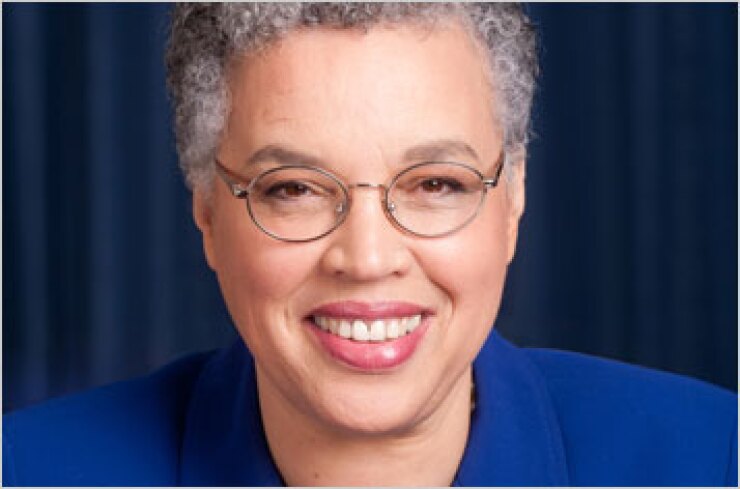
CHICAGO – Cook County's proposed 2017 $4.4 billion
Cook County board president Toni Preckwinkle cast the decision to impose a one penny per fluid ounce tax on sweetened beverages as the better choice to protect crucial services as the county struggled to close a $174 million gap in the budget.
She blamed the deficit on state funding delays due to the ongoing budget impasse, weak revenue growth, debt service costs that increase by $30 million next year, and increased technology spending needed to update outdated systems. Cook is Illinois' largest county and covers Chicago and neighboring suburbs.
"We've had to make a number of difficult decisions to create a balanced budget that provides essential public safety and public health services to county residents while being fiscally responsible," Preckwinkle said in her address Thursday. "This has been an exceptionally difficult budget, but the end result will be a more responsive and responsible County government in the years to come."
The tax covers carbonated soft drinks, fruit beverages that are not 100% fruit juice, sports drinks, and energy drinks. The tax would take effect July 1, midway into the budget year. It's expected to generate $74 million in revenue for 2017 and twice that in subsequent years.
The budget trims spending to close the remainder of the gap. The budget cuts staffing levels by 1%, which will result in 300 layoffs, and relies on savings from various initiatives and reforms such as improved enforcement and revenue collections.
Preckwinkle also pledged not to raise taxes for at least the next two years. "This should assure our residents that we mean what we say, and that we are adding a revenue component to this budget only as a last resort, while supporting critical programs and pursuing a sound, long-term financial strategy –
something the county has not always entertained," she said.
The budget allocates $111 million for its hospital and healthcare system. That's down $10 million from the previous budget and $280 million from before Preckwinkle took office in 2010 in large part due to federal healthcare reform. The county launched an insurance plan for Medicaid recipients that has resulted in more federal reimbursements. The system now serves more insured than uninsured patients.
Preckwinkle also proposed a $476 million capital budget to fund infrastructure projects and equipment and said the county will continue to work on demolition plans for older areas of its jail in an effort to save $172 million needed for capital work.
Total fiscal 2017 general fund expenditures are expected to rise, driven primarily by the county's plan earmarking higher sales tax collections to help stabilize its pension system. The county is tapping a 1% sales tax hike to cover supplemental payments to its pension fund to bring the system to a 90% funded ratio in 2046. The county's system currently carries $5.9 billion of unfunded contributions are just 60% funded.
Cook refunded $285 million of debt earlier this year and is planning a new-money issue later this year. The county's GOs are rated A2 by Moody's Investors Service, AA-minus by S&P Global Services, and A-plus by Fitch Ratings. Ahead of the refunding, Moody's Investors Service and Fitch Ratings both revised the county's outlook to stable from negative while S&P downgraded it one notch. At AA-minus it remains Cook County's highest rating. S&P assigns a stable outlook.





